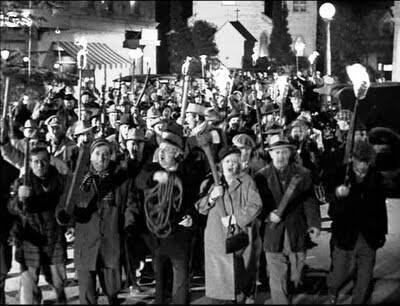With Labor Day behind us, campaigns are ramping up for the 2014 general election, and NPR’s Marilyn Geewax notes that the economy may not be the chief concern of voters: "That’s right. Gallup pollsters asked voters what was important, and the No. 1 topic turned out to be dissatisfaction with politicians. No. 2 was immigration. The economy had slipped to No. 3."
The Gallup website gives more context:
Many more Americans now mention a non-economic issue — such as dissatisfaction with government, immigration, or ethical and moral decline — than an economic one as the top problem. This reverses the situation found during much of the recession and its aftermath, when more Americans listed economic issues. The renewed focus on non-economic issues was first evident in May 2013, and the gap between economic and non-economic mentions has now widened to 33 points, with 71% of Americans mentioning non-economic issues and 38% citing economic issues.
This is excellent news for incumbents of both parties. If anything fuels a “throw the bums out” election (where, say, 92 percent rather than 98 percent of congressmen keep their seats), it’s a consensus that the economy is tanking and things couldn’t get any worse with some new people running things. Even a slow recovery causes American voters, who are quite risk-averse by international standards, to stick with the devils they know.
Further, an electorate that’s more focused on ethics in government and “moral decline” is an easier one for incumbents to, well, manipulate. They’re under less pressure to explain how their party’s policies — tax hikes or tax cuts, stimulus spending or austerity measures — will benefit the average voters. Instead, they can run full-force against the opposition party, implicitly redirecting voter dissatisfaction away from themselves and toward the other party’s voters, who keep electing idiots.
The AP’s Donna Cassata writes:
Democratic incumbents have cast themselves as outsiders as they sympathize with hostile voters.New York Rep. Dan Maffei says “we gotta hold ’em accountable” in his campaign ad. Iowa Rep. Dave Loebsack didn’t mince words when he told constituents, “Congress is an incredibly dysfunctional mess and everyone knows that,” and blamed the lack of compromise.
[But] in York, Pennsylvania, first-term Republican Rep. Scott Perry insisted that the House had been doing its job by passing bills, but that cooperation was lacking from the Democratic-led Senate and Obama.
When incumbents can tap into vague voter frustration, as opposed to deep economic anxiety, they’ve got a clear advantage, no matter how low public approval of Congress goes.
And when congressional incumbents do well, their counterparts in state legislatures also thrive. Pacific Standard’s Seth Masket explains why state lawmakers are even less likely to be held accountable by their constituents:
People are not evaluating state legislators based on their performance in office. And they’re not really doing that for members of Congress, either. They’re more or less voting a party slate. That is, they make a determination of whether they like the way things are going nationally, and then vote for or against the president’s party based on that for pretty much every partisan office.
Masket closes the loop by noting, “as we know from a great deal of research, people evaluate the president’s party in large part on the performance of the national economy.” So when Gallup reports that anger at Congress is overshadowing concerns over the economy, members of Congress can breathe a sigh of relief.








